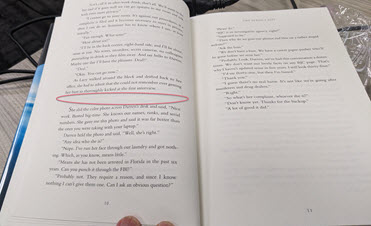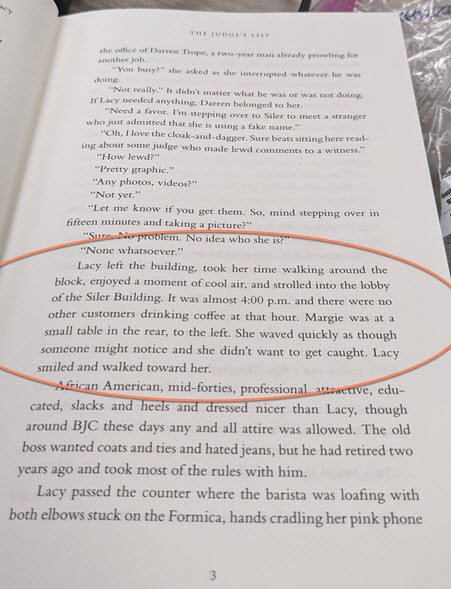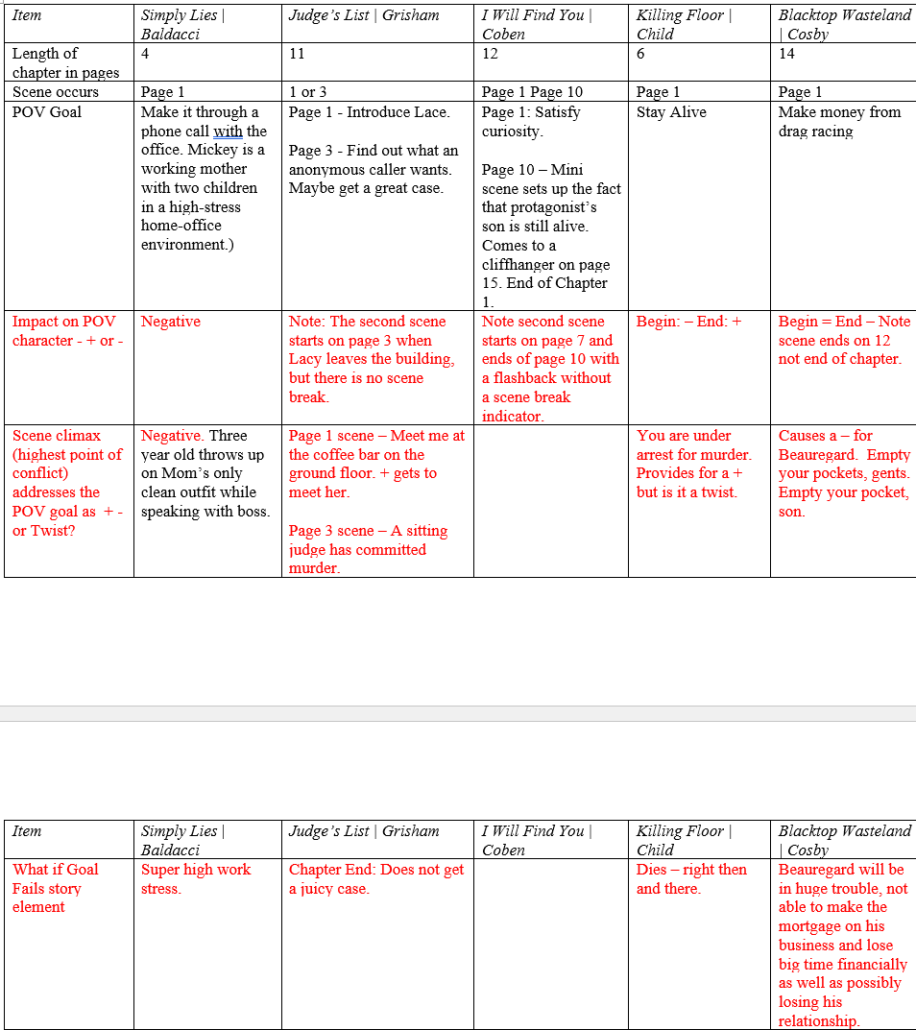I’m doing my homework for the Outline a Scene Fictionary Live course. Here’s part of the instructions. Using five books that appeal to you…
… Read the first scene where the reader is introduced to the protagonist.
Note down if this scene what the What if Goal Fails story element is for each scene.
Notice if the Impact on the POV: is it positive or negative?
Then look at the Scene Climax. …
Simple right? Maybe not. It turns out that I may not understand the definition of a scene as well as I think, or at least the way to show a scene change. Determining where a scene begins and ends is easy when reading the first chapter of SIMPLY LIES by Baldacci. The chapter is only four pages. But when I examine JUDGE’S LIST by Grisham where does the scene end? I think of a new scene starting whenever one of these items changes:
- POV character
- Characters in the scene
- Storyline
- Scene location
- Time
And, I think of a scene being delineated by an extra carriage return Like this in THE JUDGE’S LIST:

The circled area shows a vertical break which indicates a shift in scene.
Or by using a scene change character, such as a diamond, leaf, or other graphic, known as a dinkus.
But take a look at page 3 of THE JUDGES LIST:

There’s no dinkus or paragraph separation here in page 3 of The Judge’s List
Look at the circled area there. The POV character remains the same, but there’s a new scene location and a new character is introduced. Seems like a scene change to me, but there’s no physical indication of this scene change. Do only major scene changes merit special treatment? Perhaps it is just this book that does not always delineate scenes. Nope. Look at this table.

Several thrillers have scenes that are not indicated physically.
